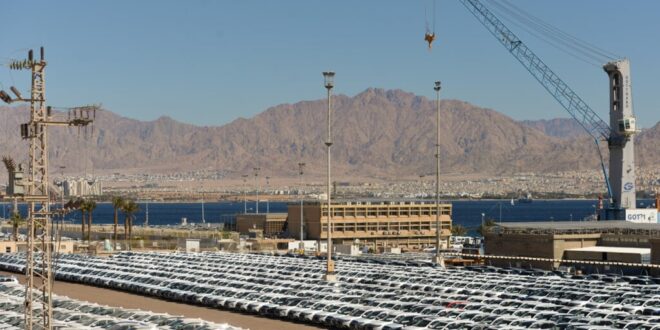Latest Developments
The Iran-backed Houthis in Yemen struck Israel with a cruise missile on March 18 for the first time. The Israel Defense Forces (IDF) confirmed on March 19 that the Israeli Air Force monitored the cruise missile until it impacted in an open area north of Eilat, causing no damage or injuries. Over the past five months, Israel’s air defense system has repeatedly intercepted other projectiles fired by the Houthis before they could hit Israeli territory. The IDF statement did not say why it did not intercept the latest missile or who launched it, but the Houthis took responsibility, claiming to have fired multiple missiles at Israel.
On March 20, Secretary of State Antony Blinken said during an interview with the Saudi news channel Al-Hadath that the United States is calling on Iran to exert pressure on the Houthis to stop their attacks on international shipping. “So we would like to see Iran exert the influence that it has, because it’s the primary supplier to the Houthis of weapons, of information, of technology. We would like to see them tell the Houthis to stop,” Blinken said.
Expert Analysis
“As Israel battles Hamas in Gaza and trades fire with Hezbollah in the north on a nearly daily basis, the Houthis are simultaneously trying to kill Israelis, too. Hamas, Hezbollah, and the Houthis all have at least one thing in common: a terror patron in Tehran.” — Bradley Bowman, Senior Director of FDD’s Center on Military and Political Power
“Israel has a highly capable multi-layered integrated missile defense system. It is not surprising that the Israel Defense Forces can safely assess a Houthi missile as a non-threat and allow it to crash in an unoccupied area. This is a reminder that missile defense is an expensive game, and both Israel and the United States need to redouble their efforts to build ‘directed energy’ defensive systems.” — RADM (Ret.) Mark Montgomery, FDD Senior Fellow and Senior Director of FDD’s Center on Cyber and Technology
“Despite a months-long strike campaign by the United States and its allies, the Houthis retain the capability to target Israel as well as commercial and military vessels in the Red Sea. Iran is now reaping the rewards of years spent financing, training, and equipping the Houthis.” — Ryan Brobst, FDD Senior Research Analyst
Houthis Have Targeted Israel Since October
On or around October 19, Saudi Arabia and the USS Carney guided missile destroyer shot down at least three land-attack cruise missiles and several drones that Houthis appeared to have launched at Israel. On October 27, a missile potentially targeting Israel also fell short in Egypt, injuring six people. On October 31, Israeli fighter jets destroyed an aerial threat, and Israel’s Arrow missile defense system shot down a surface-to-surface ballistic missile launched by the Houthis. On November 9, Israel used the Arrow 3 missile defense system for the first time to intercept a ballistic missile over the Red Sea. The Houthis have continued to launch attacks towards southern Israel, including on December 26 when the Israeli Air Force intercepted a hostile aerial target headed towards the Jewish state. On February 22, Israel used the Arrow system to shoot down a Houthi ballistic missile over the Red Sea, which likely targeted Eilat.
International Efforts Fail to Deter Houthi Attacks
Trained and equipped by Iran, the Houthis are another node in the Islamist regime’s network of terrorist proxies targeting Israel. The Houthis’ constant attacks on commercial shipping in the Bab el-Mandeb Strait, the Red Sea, and the Gulf of Aden not only have caused layoffs at Eilat’s port but have affected the international supply chain. U.S. and European efforts to deter, degrade, and defend against Houthi attacks on international shipping have not stopped Houthi attacks.
 Eurasia Press & News
Eurasia Press & News




